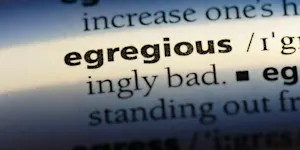What Makes This Word Tick
"Cognizant" is the sort of word that makes one feel a little smarter just by knowing it. This word implies an awareness or understanding of something, capturing that thoughtful moment when you "get it."
If Cognizant Were a Person…
Imagine someone with a perpetual knowing smile, eyebrows slightly raised, nodding along as the conversation unfolds. This person is your friend who's always up on current events and never misses a beat—ready with an insightful question or observation.
How This Word Has Changed Over Time
"Cognizant" has remained fairly consistent in its usage over the years. It's a term that's kept its roots firmly in the realm of awareness, originating from the Latin "cognoscere," which means "to know." Unlike some words that evolve wildly, "cognizant" enjoys stability.
Old Sayings and Proverbs That Use Cognizant
An old proverb says, “To be forewarned is to be forearmed,” and being "cognizant" is the essence of this wisdom. It's about having the awareness to prepare for whatever life throws your way.
Surprising Facts About Cognizant
Did you know "cognizant" is often used in legal and business contexts to emphasize awareness or understanding? It frequently appears in mission statements where companies claim to be "cognizant of their social responsibilities."
Out and About With This Word
Next time you’re at a town hall or community meeting, listen for "cognizant" to pop up in discussions about being aware of community issues or the needs of fellow residents. It’s a word that shows you're in the know and engaged.
Pop Culture Moments Where Cognizant Was Used
While it might not headline a blockbuster, "cognizant" often features in detective dramas where keen awareness and understanding are crucial to solving the mystery. Picture Sherlock Holmes being ever so "cognizant" of every detail.
The Word in Literature
In literature, "cognizant" fits like a glove in mystery novels and psychological thrillers where characters piecing together a puzzle are key. It evokes a sense of alertness and insight central to many narratives.
Moments in History with Cognizant
One might say the drafters of the U.S. Constitution were quite "cognizant" of the issues faced by their former colonies. Their awareness and understanding of tyranny led to the careful design of checks and balances.
This Word Around the World
Globally, being "cognizant" is a concept embraced by many cultures. While the word itself might differ—like "conscient" in French—the idea of awareness is universally valued and expressed across languages.
Where Does It Come From?
The word "cognizant" traces back to the Latin "cognoscere," meaning "to know," reinforced by the French influence seen in "connaître." It traverses historical linguistic paths, preserving its core meaning of awareness through centuries.
How People Misuse This Word
Sometimes people use "cognizant" when they mean "conscious." While related, "cognizant" is about having knowledge or being aware, whereas "conscious" refers more to being awake or having active thought.
Words It’s Often Confused With
Conscious: Refers to being awake or aware, but often confused due to the similarity in implication of awareness.
Aware: A simpler synonym, sometimes used interchangeably, but lacks the formal tone of "cognizant."
Informed: Implies having information, but may not include the nuanced understanding "cognizant" suggests.
Additional Synonyms and Antonyms
Synonyms: Aware, informed, knowledgeable
Antonyms: Ignorant, oblivious, unaware
Want to Try It Out in a Sentence?
While others chatted aimlessly, she was cognizant of the changes in the atmosphere, sensing an approaching storm both literally and metaphorically.
















